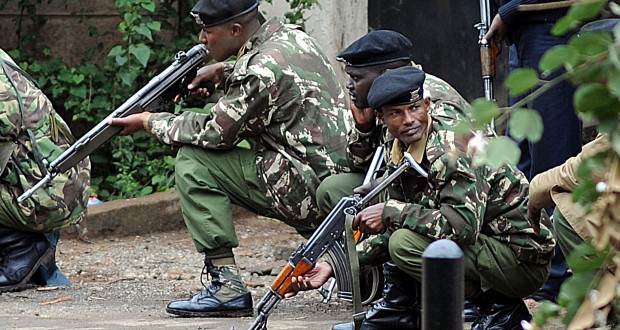Some suspected foreign mercenaries and child soldiers were among Boko Haram fighters who attacked some towns and villages in Adamawa State, sources said yesterday.
The mercenaries are said to be “fair” in complexion and do not look like Nigerians.
Some of the child soldiers have been captured by troops.
The Defence Headquarters (DHQ) yesterday said Mubi, the second largest town in Adamawa State, has not been attacked by Boko Haram insurgents.
Mubi was said to be “highly” fortified as at the time of filing this report.
More troops were, however, mobilised from three formations of the Army to flush out the insurgents from Adamawa.
Troops and those displaced in Bama, Gwoza, Madagali, Michika, Marte, Gulak and Mubi have seen the mercenaries and child soldiers.
It is not yet clear where the mercenaries came from.
It was gathered that troops have captured some child soldiers during successful encounters with Boko Haram.
A source said the captured child soldiers were being interrogated.
“These claims are already being investigated by the military and security agencies in order to ascertain whether they are from neighbouring countries or they were drawn from the pool of Al-Qaeda in the Maghreb(AQIM),” the source said, adding:
“So, you need to appreciate the large scale dimension which the war the troops are waging against the insurgents has taken.
“There will be a lot of intelligence gathering on the discovery in order to ascertain those behind these insurgents and sources of their arms and back-up.”
More than 500 troops from Nigerian Army formations in three states were yesterday drafted to Adamawa State to flush out the insurgents who have held on to Gulak, Michika, and Kirchinga, among others.
“Very soon, all the seized towns will be liberated and normal business activities restored to these areas”, a source said, pleading not to be named as he is not allowed to talk to the media.
The source also admitted that Mubi had been heavily fortified to repel insurgents from the commercial town and its environs.
The DHQ in a terse statement, simply said the situation was calm in Mubi.
The statement on Twitter said: “Mubi has not been attacked. Troops are still on Patrol. Deployment positions in and around the town keeping watch. Situation is calm.”
On the situation in Bama and Gwoza, a military source added: “We have sustained aerial strikes in these areas to clear the towns of any trace of insurgents.
“We are winning the battle but the insurgents are good at propaganda; they are making Nigerians to believe that the military is losing. The truth will soon be out.”
The commandant of Adamawa Internally Displaced Persons Camp, Mr Abdulmumini Jauro, said yesterday that no fewer than 1,300 Internally Displaced Persons had been registered.
Jauro spoke in an interview with the News Agency of Nigeria at the Bajabure refugee camp in Girei Local Government Area.
The commandant, who is a member of the Nigerian Red Cross Society, said nine expectant women were among the IDPs.
“We have so far registered over 1,300 Internally Displaced Persons who escaped from insurgent attacks in Madagali, Michika and Mubi North and South Local Government Areas of the state,” Jauro said.
Among the refugees are 162 students of the Federal Polytechnic and the Adamawa State University, Mubi, who hail from Taraba State.
He said 360 were women and 175 children.
The commandant said two women had given birth and that both mothers and the babies were in good health.
He thanked individuals and organisations for their massive assistance to the refugees.
Secretary to the State Government (SSG) Prof. Abdullahi Liman Turkur, who visited the camp, directed that displaced children in the camp be accommodated in the Federal Government Colleges, pending the return of normalcy.
It was gathered that local hunters in Adamawa State have attacked and killed some members of the Boko Haram in Madagali and Michika local governments areas. Unconfirmed reports indicated that 75 members of the sect were gunned down.
The insurgents were said to have been retreating having run out of ammunition.














